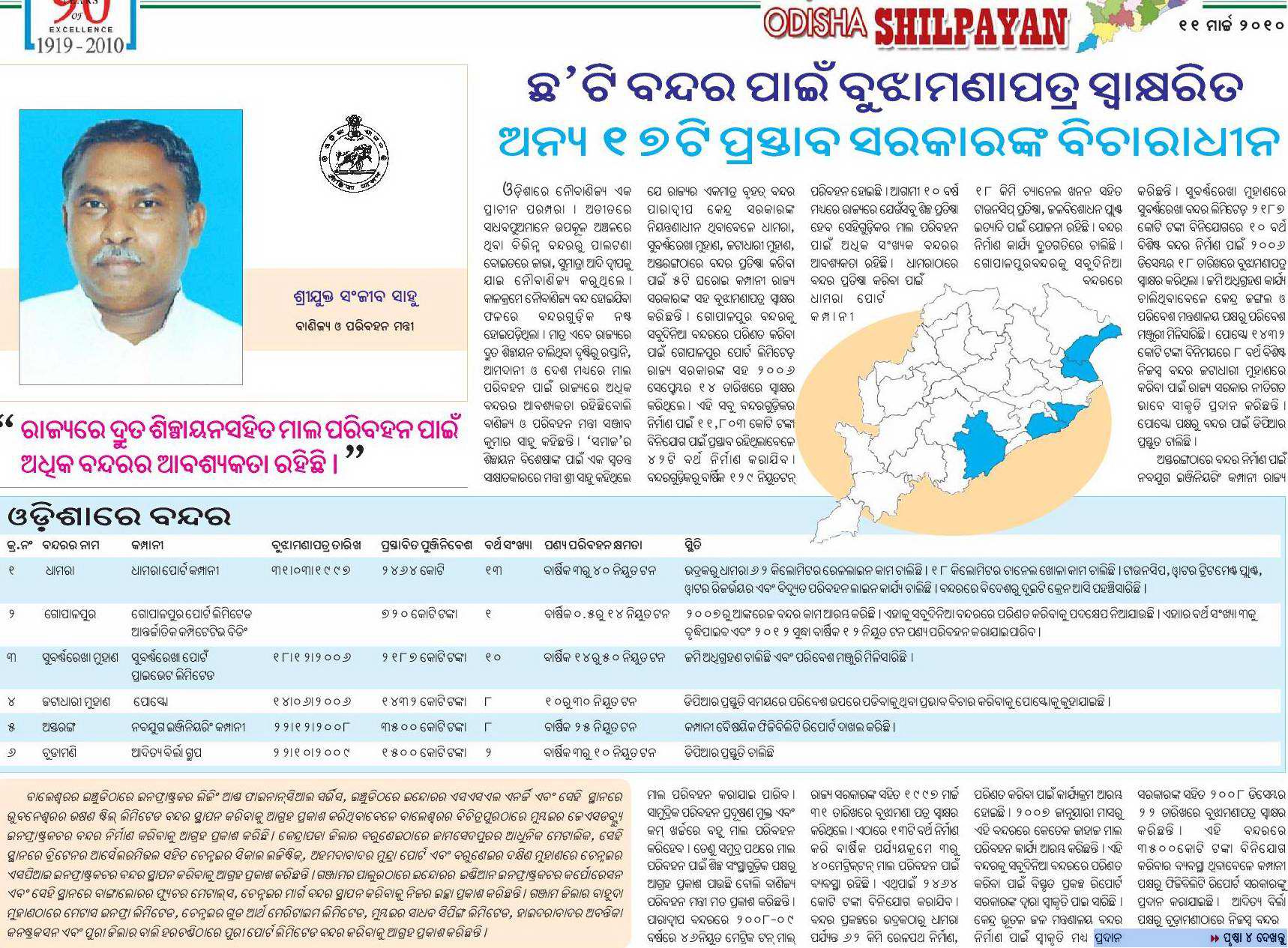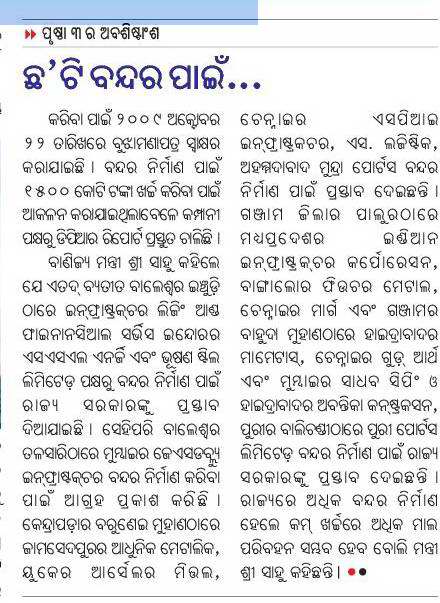JSPL interested in setting up a captive port in Bahuda Muhana
Bahuda Muhana, Ganjam (many interested), Berhampur- Gopalpur- Chhatrapur, Ganjam, Jindal Comments Off on JSPL interested in setting up a captive port in Bahuda MuhanaFollowing is an excerpt from a report in Business Standard.
After committing investments on a new six million-tonne-per-annum (mtpa) steel plant, a captive power plant and a coal-to-liquid project in Orissa, Jindal Steel & Power Ltd (JSPL) has evinced interest on setting up a captive port in Ganjam district.
It involves a capital cost of Rs 1,424 crore, while the operational cost of running the port would be Rs 152 crore per annum. The first phase is scheduled to be operational by 2017.
The location is 30 km south of the existing Gopalpur port and 18 km from Berhampur.
JSPL today made a presentation to the state commerce and transport department on the proposed port at the mouth of the Bahuda river, a perennial port. The port does not require acquisition of farm land and there are no issues involved with nesting of the endangered Olive Ridley turtles in the area.
… The captive port will handle capesize vessels (150,000 or dwt) for coal and coke and Handymax vessels (50,000 dwt) for general cargo. During the first phase, the port will have two dedicated berths for handling coal and limestone and one berth for general cargo. The port is anticipated to handle about 33 million tonnes per annum of coal and other import items. Six capesize vessels of 150,000 dwt would make 36 visits each per annum for 33 mtpa of coal and other export items.
Work on the second phase is set to begin after 2017, when the port will have three more general berths.
By 2017, the port is expected to handle 4.93 million tonnes (mt) of steel coils and 900,000 tonnes of steel plates. Similarly, the company will import 5.5 mt of coking coal, 7.46 mt of non-coking coal, 2.6 mt of limestone and 3.7 mt of dolomite through this port by that period.
By 2020, the export of coils from the port is projected at 9 mt. Likewise, JSPL would import 12.6 mt coking coal, 7.5 mt non-coking coal, 4.4 mt limestone and 4.7 mt dolomite.
The multiplier effects of the port include revenue from cargo handling, regional economic development, and employment generation, development of road and rail connectivity and acceleration of local economy as well as that of the state.


.jpg)
